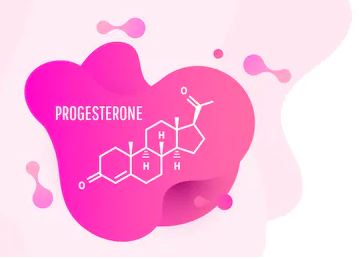Hello all! Welcome to Express Compounding’s blog. I get asked every now and then on what exactly progesterone is and what does it do? Today we are going to explore some facts and functions of progesterone and what every person needs to know. Let’s learn about progesterone, eh?
What Is Progesterone?
Progesterone is found in both men and women but since it is considered a female hormone, we are going to analyze it from a female perspective. In a nutshell, it is a known fact that progesterone is a naturally occurring female hormone produced by the ovaries that preps and helps sustain the uterus for pregnancy. Progesterone can come in a few different flavors. One is the synthetic version, known as progestin, which exhibits progesterone like properties. Typically you see progestins combined with estrogen in many commercially available oral contraceptives. Progestin can help alleviate many menopausal symptoms such as episodes of hot flashes, vaginal dryness and mood swings [insert relieved smiley face emoji here]. Natural progesterone is another available form, which is where compounded bio-identical hormone replacement therapy can come into play.
What Is The Function of Progesterone?
Progesterone has several functions in the female body. One function is it thickens the endometrial lining which increases the chances of accepting a fertilized egg. Typically when the female body produces high levels of progesterone, her body should not ovulate. If a woman does not accept the fertilized egg and become pregnant, then this is where you see progesterone levels start to drop which leads to menstruation.
Varying levels of progesterone in the body can cause an array of symptoms. Low progesterone levels may cause irregular menses, insomnia, cramping, fluid retention to name a few. High levels of progesterone can lead to fatigue, irritability and possible depression.
Okay fellas…if you thought you escaped this conversation…think again. Even though progesterone is considered a female hormone, males need the much needed progesterone to produce testosterone. Low progesterone can cause many problems, some of which are fatigue, hair loss, muscle loss and erectile dysfunction.
There you go folks, now when your friends and family ask you to inform them about the function of progesterone, you can now do so.
